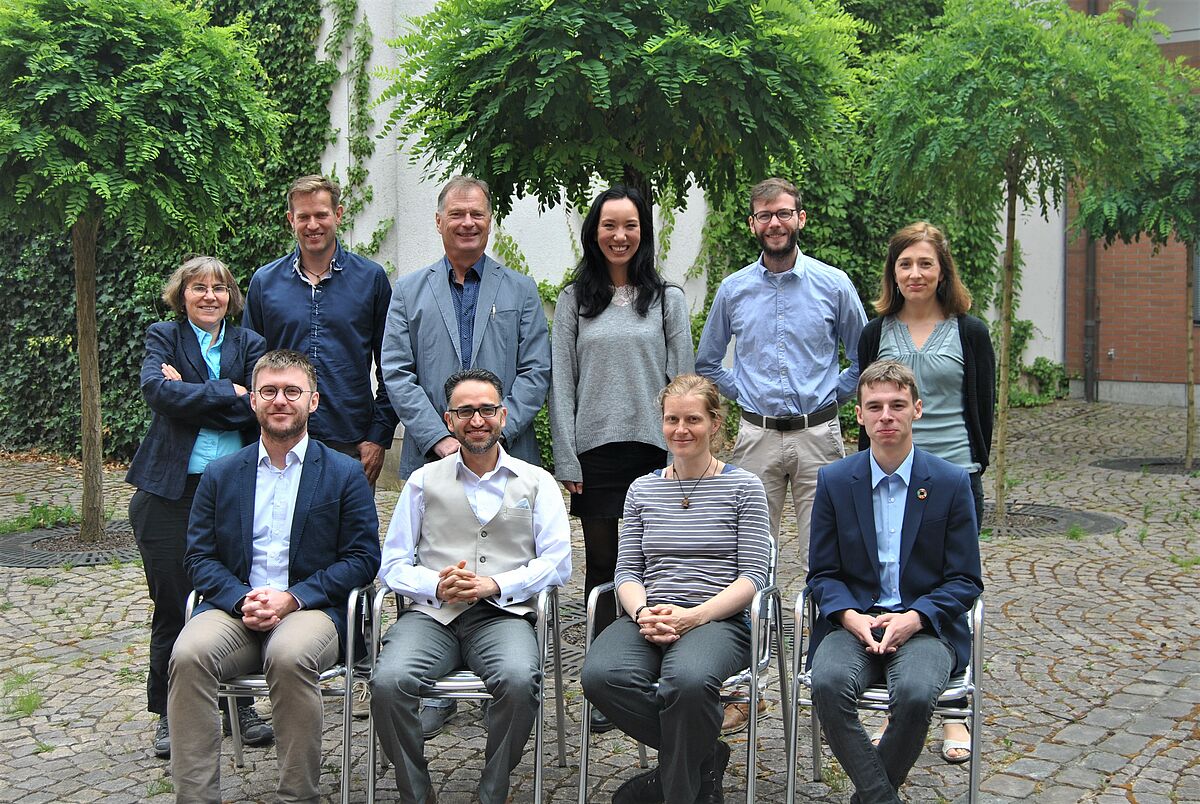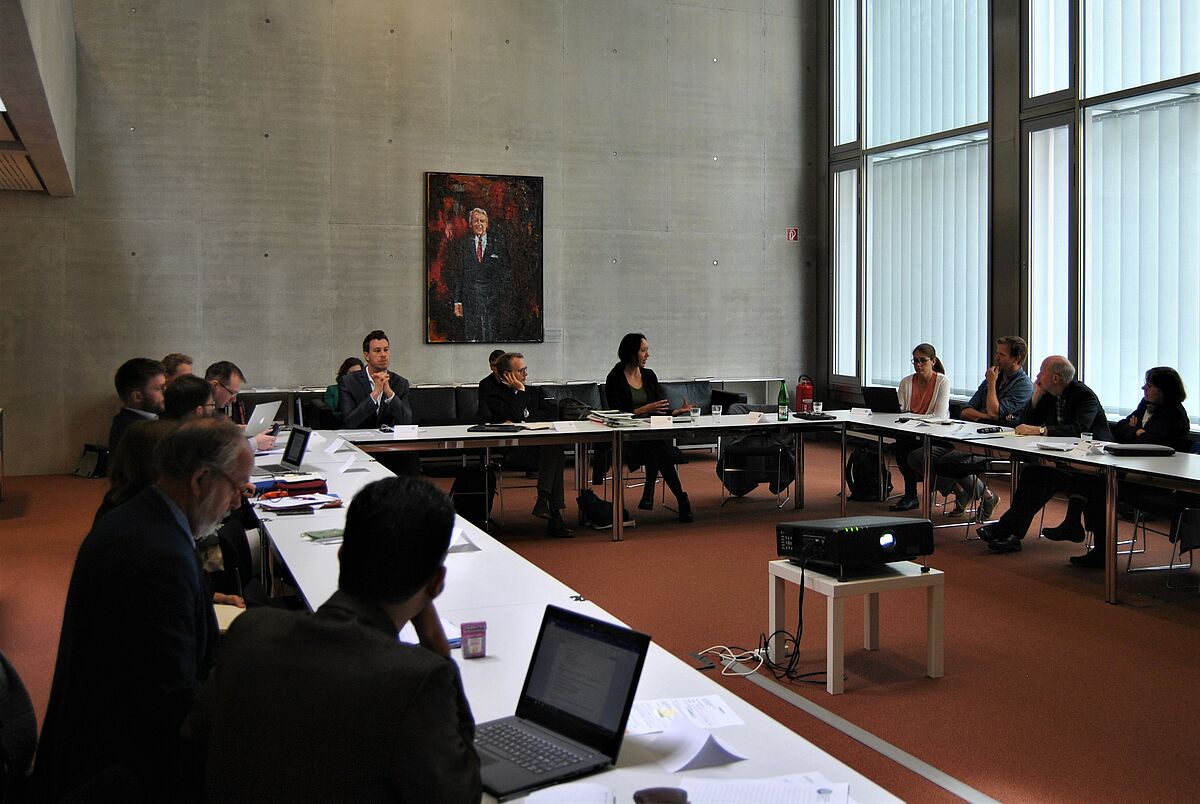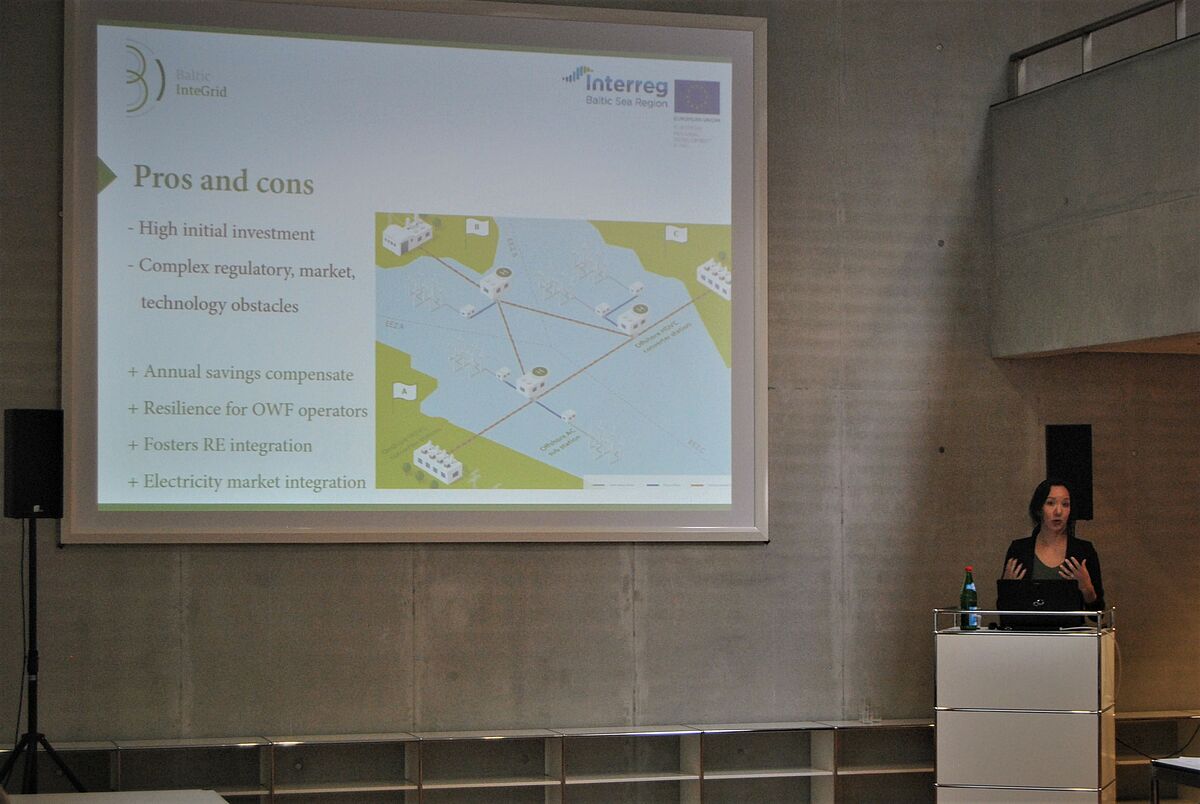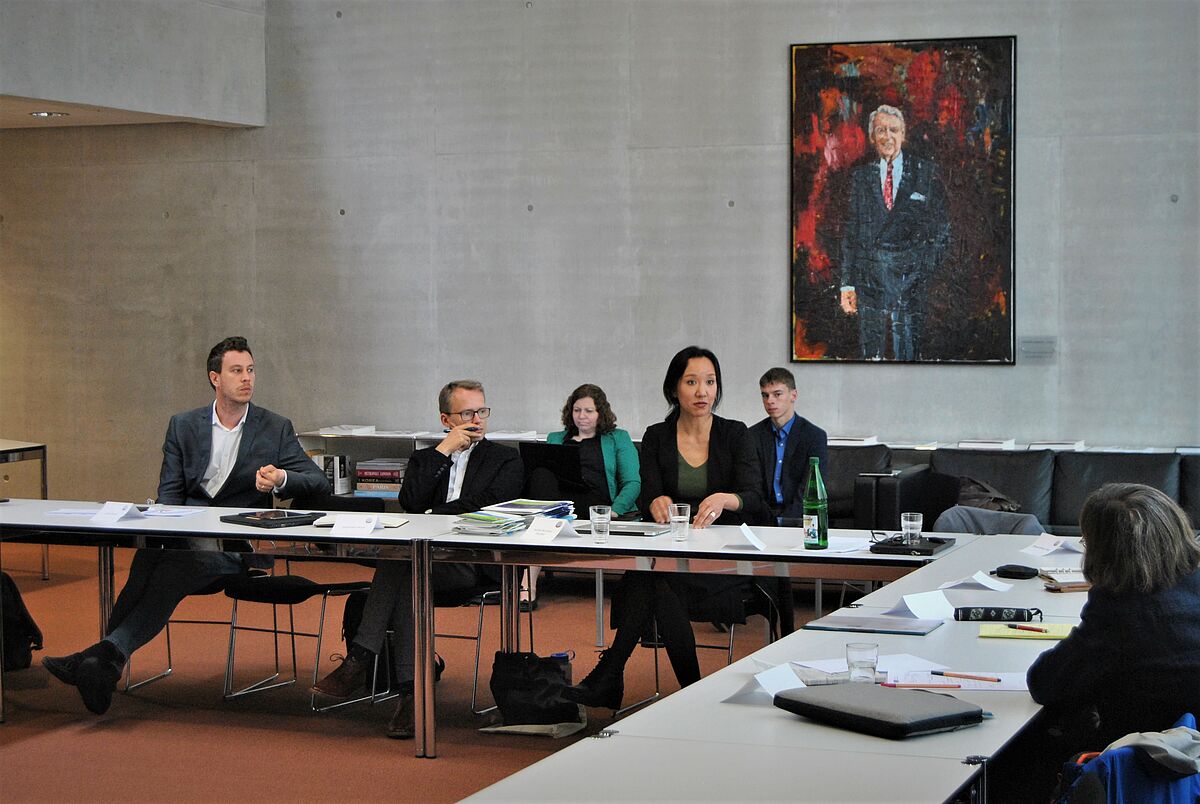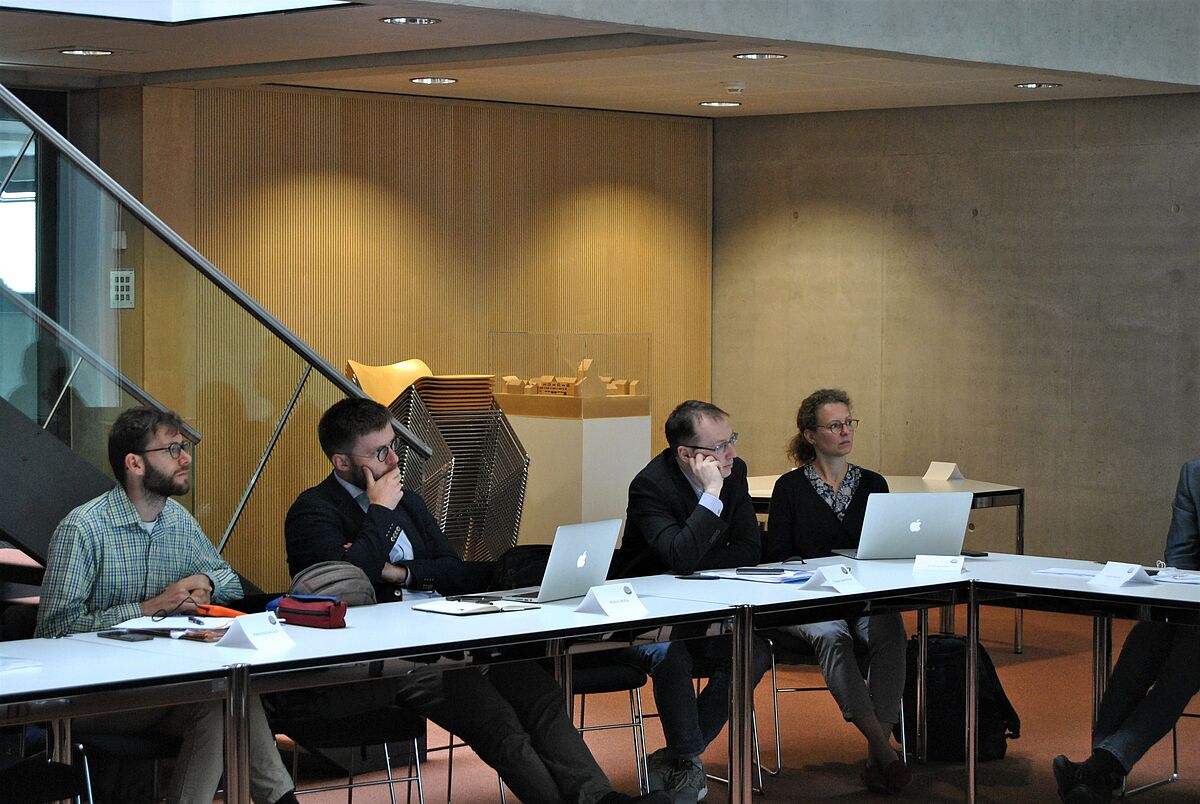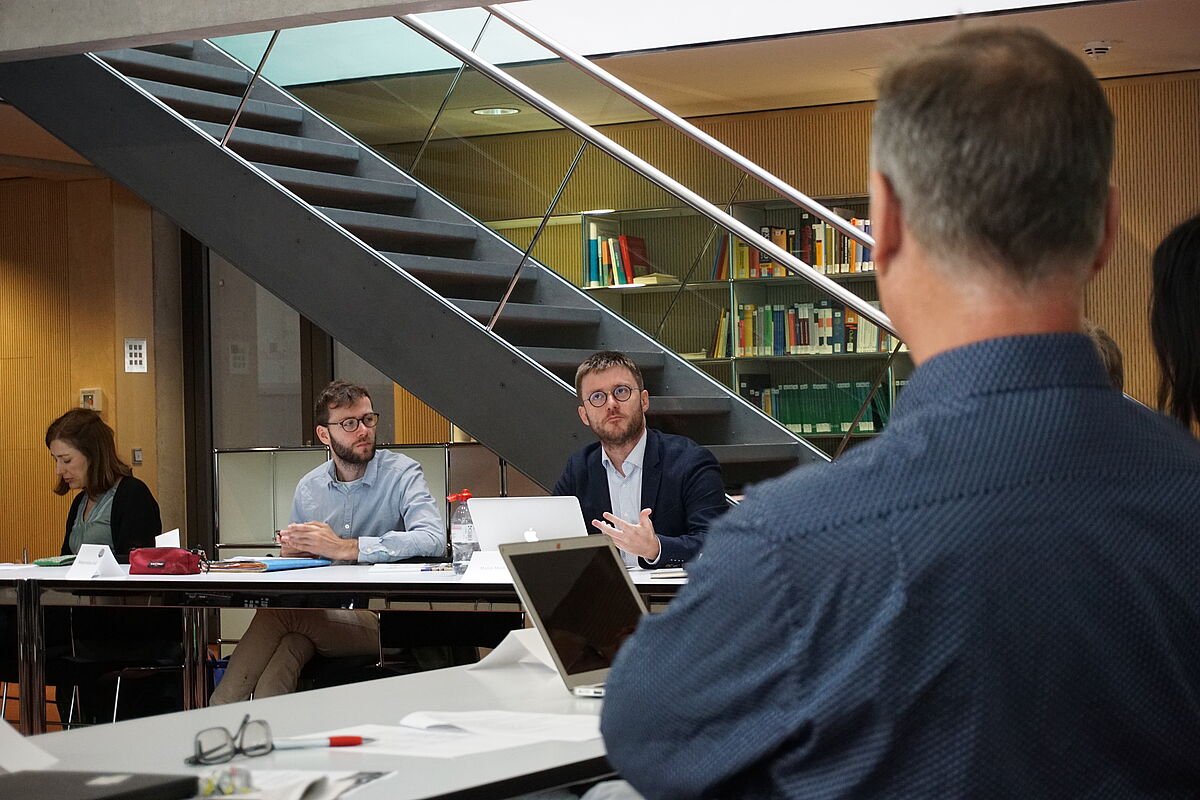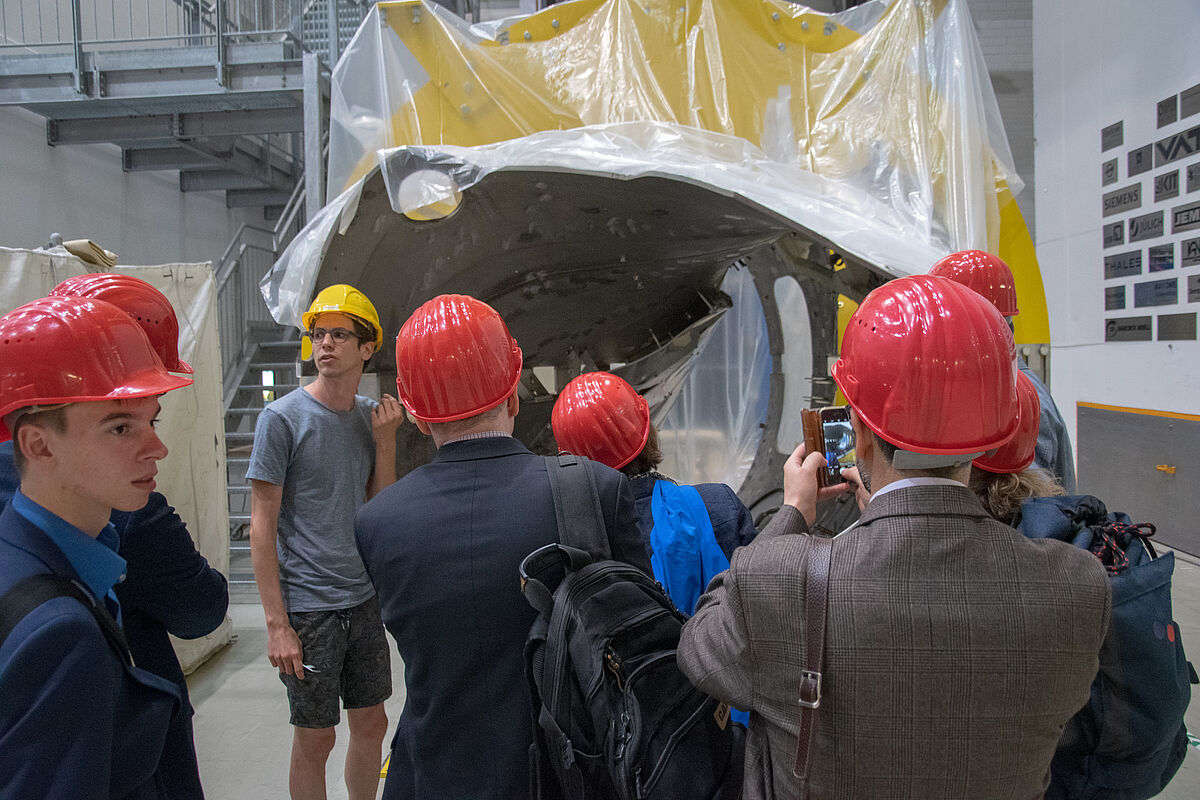Kickoff-Workshop – Energy
Challenges of the Energy Law and Policy Framework in the Baltic Sea Region
Report
Challenges of the Energy Law and Policy Framework in the Baltic Sea Region (BSR)
The kick-off workshop of Energy cluster was held on 4-5 July at Alfried Krupp Wissenschaftskolleg in Greifswald. Michael Rodi and Farid Karimi hosted the workshop on behalf of the IFZO.
After a welcoming word, Prof Michael North, the speaker of IFZO and Prof Michael Rodi, the speaker of the energy cluster, were invited to give their opening speeches. Michael North gave an overview of the IFZO and its goals. Michael Rodi elaborated the objectives of the workshop, including establishing a network for future collaboration and how to make energy market work in the BSR. He mentioned that Greifswald has geopolitical importance when it comes to energy question: it has a nuclear fusion project that is fairly unique, Nord stream projects, and the first decommissioned nuclear power plant.
The first panel of the workshop was on Regulatory challenges chaired by Michael Rodi. The first speaker of the panel, Prof Margarita Balmaceda of Seton Hall University and Harvard University, USA, gave her talk on Nord Stream, Ukraine, and New Conceptualisations of Energy Space. She stated that there is a lack of research on the conceptualisation of energy space in BSR. Conceptualising and defining energy space would impact on risk cost management and investment financing, among others.
Anika Nicolaas Ponder of the Institute for Climate Protection, Energy and Mobility (IKEM), Germany, presented the outcome of her latest project InteGrid on the meshed offshore grids in the Baltic Sea. She mentioned that there is significant growth potential for offshore wind energy (OWE) in BSR, but political commitment is lacking. Furthermore, Ponder discussed the pro and cons of meshed grids. She concluded that for meshed grids, we need to act now; otherwise, wind parks grow as a business as usual.
The final speaker of the panel Maksymilian Zoll of TU Darmstadt, Germany, had a presentation on Poland low carbon energy transition as a multi-level governance coordination phenomenon. He gave an overview of national legacies, state governance, and external influences on the energy transition in the context of Poland. He claimed that discourse on energy transition in Poland has strongly economised, and, the perspective of sustainable development has marginalised. However, on the local level (i.e., municipalities), there a larger enthusiasm for the clean energy transition. Zoll emphasised that financial support by the EU has a significant effect on willingness to advance the energy transition.
The first day of the workshop was ended by site visits to Max Planck Institute (i.e., nuclear fusion project) and Greifswald Nuclear Power Plant while passing by the Nord Stream project. These site visits highlighted the potential of Greifswald to become an international hub for energy studies on BSR.
The second day of the workshop was started by panel two on Energy transition and society, moderated by Farid Karimi. The first speaker of the panel Matúš Mišík of the Comenius University, Slovakia, gave his speech on energy and climate policies in Germany and Central and Eastern Europe (CEE). He stated that CEE countries characterised by heavy industries and lower environmental concerns. The aftermath of the gas crisis in 2009, the top priority for CEE has been energy security; according to Mišík. Thus, the focus of CEE is on domestic sources of energy that is mostly coal. He emphasised on the central role of the EU in the energy transition in the CEE.
Prof Tomas Janeliūnas of Vilnius University, Lithuania, discussed Lithuanian energy strategy and regional cooperation. He mentioned that Lithuania is one of the most energy-dependent states in the EU. Janeliūnas stated that Lithuanian primary principals of new energy strategy are energy security, green energy and innovations. He concluded his speech that Lithuanian energy strategy is very in line with EU objectives and even exceeds some of the goals.
Farid Karimi of the IFZO was the last speaker of this panel. He outlined one of the research areas of the energy cluster that is Unlocking potentials for community participation in renewable energy deployment in the BSR. Karimi emphasised that research on social acceptability is an important topic for the energy cluster. Finally, he suggested that future studies should shift from studying social acceptance to social acceptability. Karimi defined social acceptability as a combination of social acceptance and social support: social acceptability is a more democratic and socially inclusive concept than social acceptance.
The last presentation of the workshop was on the potential of biomass from Paludiculture as a renewable energy resource in the BSR. Stefan Ewert and Anke Nordt of the University of Greifswald presented the current results of their project at the Greifswald mire centre. They stated the advantages of using paludiculture that includes improving air quality and reducing CO2 emission. According to Ewert and Nordt, paludiculture is the productive use of wet peatlands. Nonetheless, social acceptance is one of the challenges for the large-scale use of paludiculture as biomass.
The workshop was ended by an engaging and fruitful roundtable and discussion. Participants of the workshop reflected on the ways that the IFZO energy cluster could proceed with its work and the advancement of the cluster. Moreover, most of the participants have shown interest in future collaboration with IFZO.
Report: Farid Karimi

